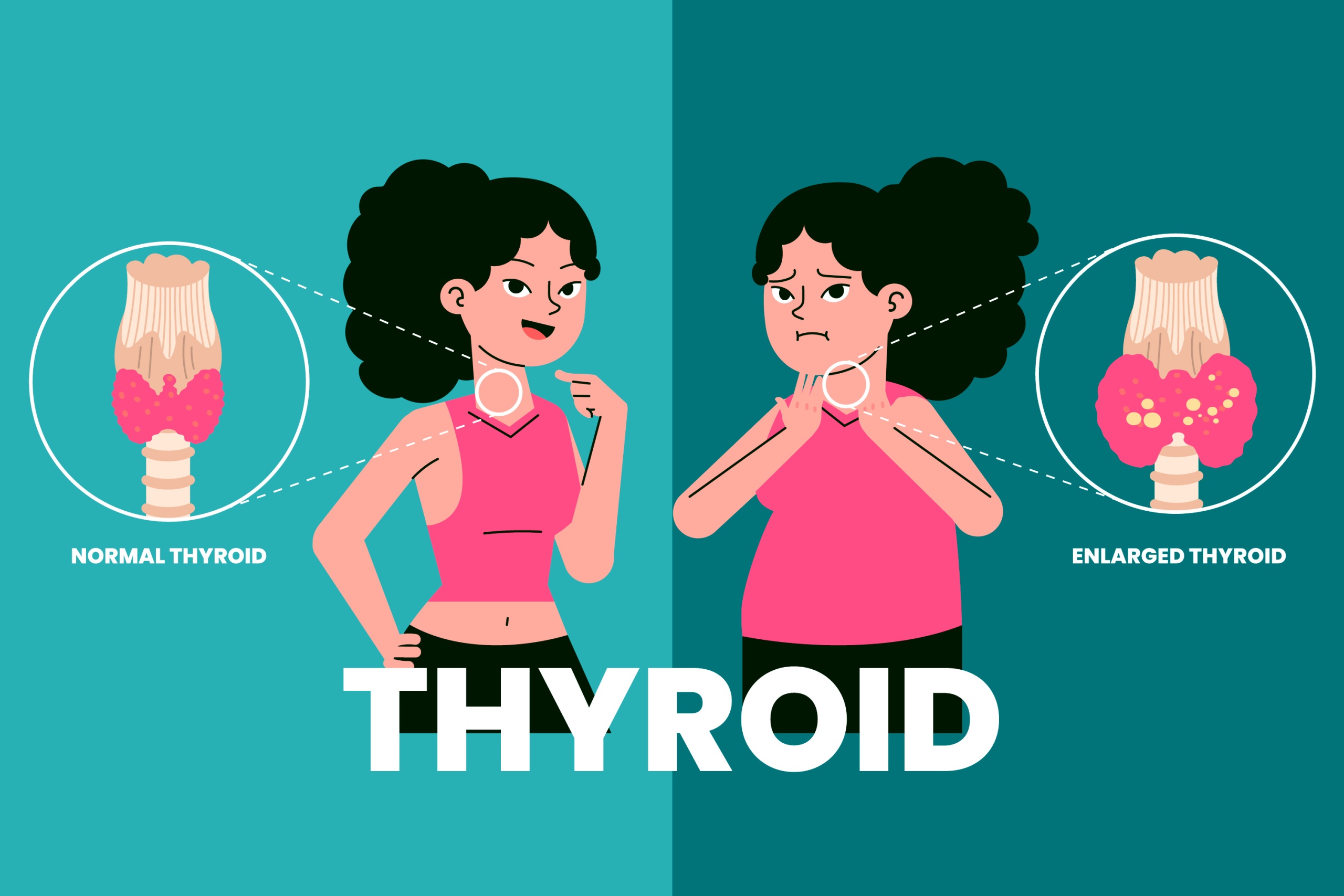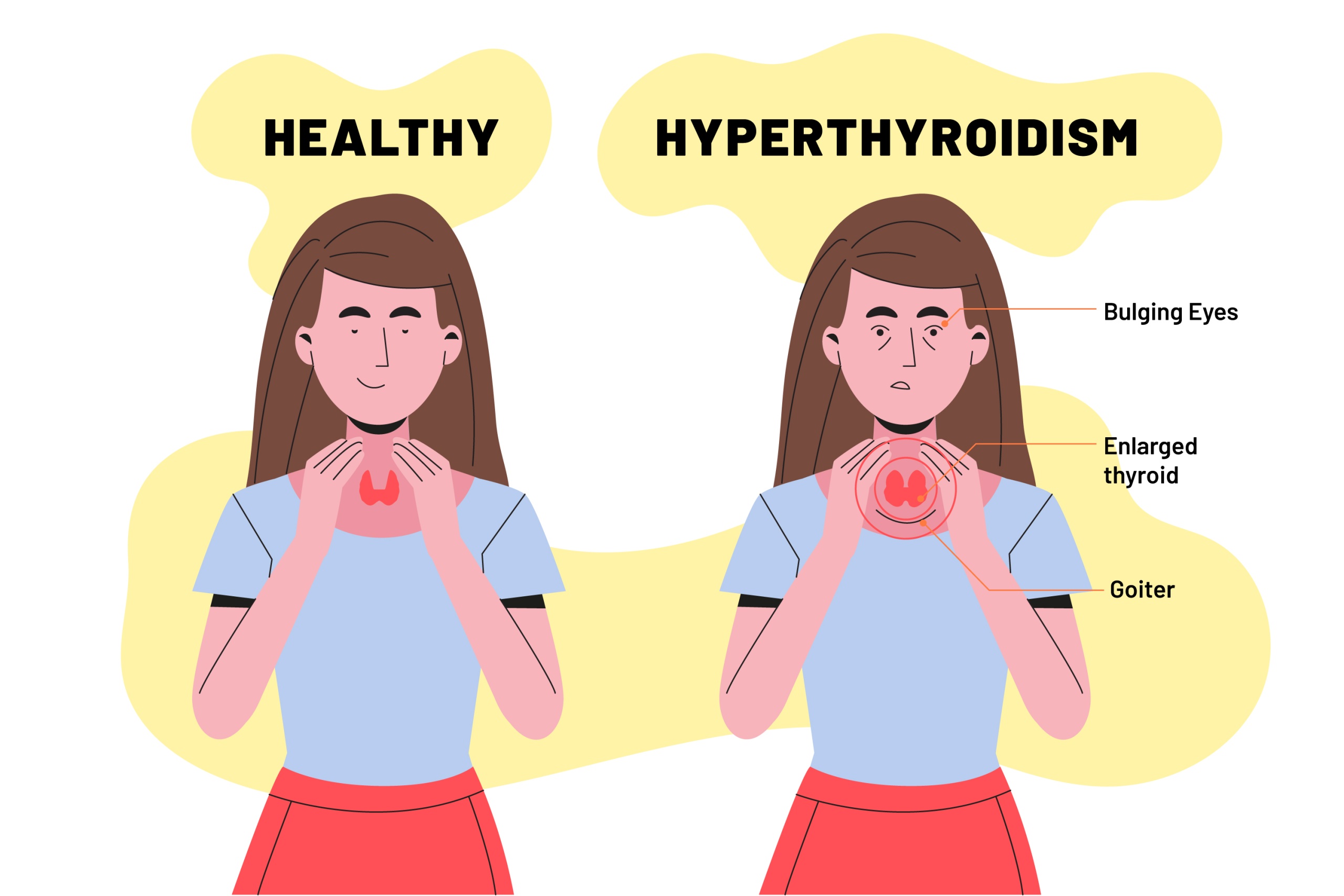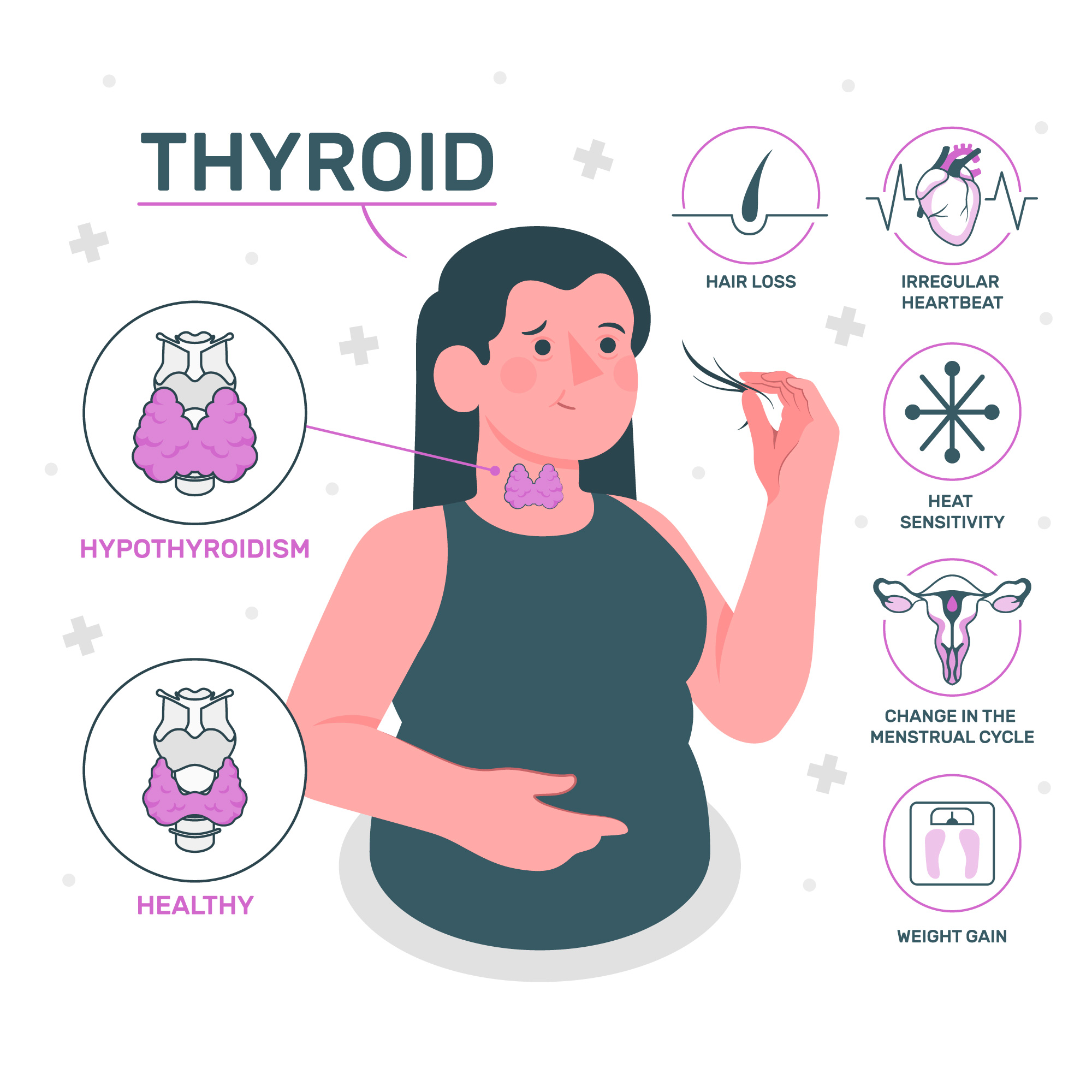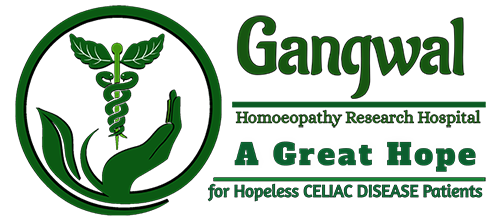
Thyroid
Each person’s experience of thyroid illness differs depending on some factors; a patient will not necessarily have all the below symptoms and some patients have the symptoms in the absence of thyroid disease. First let’s understand what is it, the thyroid gland is a small butterfly-shaped gland at the base of the neck. However, the hormones that this small gland secretes are essential to all growth and metabolism. The gland is a regulator of all body functions. Through the hormones it produces, the thyroid gland influences almost all of the metabolic processes in your body. Thyroid disorders can range from a small, harmless goiter (enlarged gland) that needs no treatment to life-threatening cancer. The most common thyroid problems involve abnormal production of thyroid hormones. Too much thyroid hormone results in a condition known as hyperthyroidism. Insufficient hormone production leads to hypothyroidism.

Symptoms of thyroid disease
Signs and symptoms of hypothyroid and hyperthyroid conditions include:
Hypothyroidism
- Weak slow heart beat
- Muscular weakness and constant fatigue
- Sensitivity to cold
- Thick puffy skin and/or dry skin
- Slowed mental processes and poor memory
- Constipation
- Goitre (increased size of the thyroid)
Hyperthyroidism
- Rapid forceful heartbeat
- Tremor
- Muscular weakness
- Weight loss in spite of increased appetite
- Restlessness, anxiety and sleeplessness
- Profuse sweating and heat intolerance
- Diarrhea
- Eye changes
- Goitre (increased size of the thyroid)
- More on Hyperthyroidism


The emotional aspects of thyroid illness
There may be emotional reactions to thyroid illness. Hyperthyroid patients often feel unusually nervous or irritable. Hypothyroid patients can feel unusual fatigue or depression. Thyroid patients and their families need to understand that these reactions are common and likely to resolve with treatment. It is also important to realize that some thyroid disorders develop very gradually and it can take a while before they disappear after treatment has been initiated. Since symptoms may not be easily recognized at first, subtle reactions in emotions or behaviour may be the only visible signs of thyroid disorder.
Hypothyroidism poses a special danger to newborns and infants. A lack of thyroid hormones in the system at an early age can lead to the development of cretinism (mental retardation) and dwarfism (stunted growth). Most infants now have their thyroid levels checked routinely soon after birth. If they are hypothyroid, treatment begins immediately. In infants, as in adults, hypothyroidism can be due to these causes:
A hypothyroid infant is unusually inactive and quiet, has a poor appetite, and sleeps for excessively long periods.
Although the effects can be unpleasant or uncomfortable, most thyroid problems can be managed well if properly diagnosed and treated. Thyroid disorders for the most part are treatable; however, untreated thyroid disease can produce serious results in other parts of the body. Improved public awareness and understanding of thyroid disorders enable patients and their families to cope more effectively with the sometimes disturbing course of thyroid illness. In this way, individuals will also be better equipped to play a role in alerting their physicians to a suspected thyroid condition that may otherwise be difficult to diagnose in the sometimes slowly developing initial phases.
Treatments
Thyroid treatment depends on the specific thyroid condition a person has. The two most common thyroid conditions are hypothyroidism (underactive thyroid) and hyperthyroidism (overactive thyroid). Here’s an overview of the…









